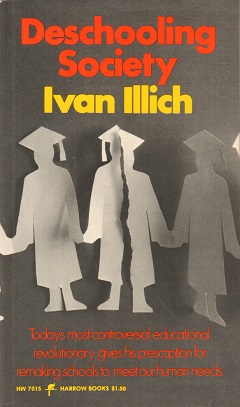Related Research Articles
A monopoly, as described by Irving Fisher, is a market with the "absence of competition", creating a situation where a specific person or enterprise is the only supplier of a particular thing. This contrasts with a monopsony which relates to a single entity's control of a market to purchase a good or service, and with oligopoly and duopoly which consists of a few sellers dominating a market. Monopolies are thus characterised by a lack of economic competition to produce the good or service, a lack of viable substitute goods, and the possibility of a high monopoly price well above the seller's marginal cost that leads to a high monopoly profit. The verb monopolise or monopolize refers to the process by which a company gains the ability to raise prices or exclude competitors. In economics, a monopoly is a single seller. In law, a monopoly is a business entity that has significant market power, that is, the power to charge overly high prices, which is associated with a decrease in social surplus. Although monopolies may be big businesses, size is not a characteristic of a monopoly. A small business may still have the power to raise prices in a small industry.
Social software, also known as social apps or social platform includes communications and interactive tools that are often based on the Internet. Communication tools typically handle capturing, storing and presenting communication, usually written but increasingly including audio and video as well. Interactive tools handle mediated interactions between a pair or group of users. They focus on establishing and maintaining a connection among users, facilitating the mechanics of conversation and talk. Social software generally refers to software that makes collaborative behaviour, the organisation and moulding of communities, self-expression, social interaction and feedback possible for individuals. Another element of the existing definition of social software is that it allows for the structured mediation of opinion between people, in a centralized or self-regulating manner. The most improved area for social software is that Web 2.0 applications can all promote co-operation between people and the creation of online communities more than ever before. The opportunities offered by social software are instant connections and opportunities to learn.An additional defining feature of social software is that apart from interaction and collaboration, it aggregates the collective behaviour of its users, allowing not only crowds to learn from an individual but individuals to learn from the crowds as well. Hence, the interactions enabled by social software can be one-on-one, one-to-many, or many-to-many.

Ivan Dominic Illich was an Austrian Roman Catholic priest, theologian, philosopher, and social critic. His 1971 book Deschooling Society criticises modern society's institutional approach to education, an approach that constrains learning to narrow situations in a fairly short period of the human lifespan. His 1975 book Medical Nemesis, importing to the sociology of medicine the concept of medical harm, argues that industrialised society widely impairs quality of life by overmedicalising life, pathologizing normal conditions, creating false dependency, and limiting other more healthful solutions. Illich called himself "an errant pilgrim."

A first language (L1), native language, native tongue, or mother tongue is the first language or dialect that a person has been exposed to from birth or within the critical period. In some countries, the term native language or mother tongue refers to the language or dialect of one's ethnic group rather than one's first language.

In sociology, the post-industrial society is the stage of society's development when the service sector generates more wealth than the manufacturing sector of the economy.
Blended learning or hybrid learning, also known as technology-mediated instruction, web-enhanced instruction, or mixed-mode instruction, is an approach to education that combines online educational materials and opportunities for interaction online with physical place-based classroom methods.

Across the many fields concerned with interactivity, including information science, computer science, human-computer interaction, communication, and industrial design, there is little agreement over the meaning of the term "interactivity", but most definitions are related to interaction between users and computers and other machines through a user interface. Interactivity can however also refer to interaction between people. It nevertheless usually refers to interaction between people and computers – and sometimes to interaction between computers – through software, hardware, and networks.
Deschooling is a term invented by Austrian philosopher Ivan Illich. Today, the word is mainly used by homeschoolers, especially unschoolers, to refer to the transition process that children and parents go through when they leave the school system in order to start homeschooling. The process is a crucial basis for homeschooling to work. It involves children gradually transitioning away from their schoolday routine and institutional mentality, redeveloping the ability to learn via self-determination, and discovering what they want to learn in their first homeschool days.
Educational technology is the combined use of computer hardware, software, and educational theory and practice to facilitate learning. When referred to with its abbreviation, edtech, it often refers to the industry of companies that create educational technology.
Networked learning is a process of developing and maintaining connections with people and information, and communicating in such a way so as to support one another's learning. The central term in this definition is connections. It adopts a relational stance in which learning takes place both in relation to others and in relation to learning resources. In design and practice, networked learning is intended to facilitate evolving sets of connections between learners and their interpersonal communities, knowledge contexts, and digital technologies.
Digital literacy is an individual's ability to find, evaluate, and communicate information by utilizing typing or digital media platforms. It is a combination of both technical and cognitive abilities in using information and communication technologies to create, evaluate, and share information.
In international economics, overdevelopment refers to a way of seeing global inequality and pollution that focuses on the negative consequences of excessive consumption. It exists as the mutually constitutive counterpart to the more commonly known concept of 'underdevelopment'.

Monopolies of knowledge arise when the ruling class maintains political power through control of key communications technologies. The Canadian economic historian Harold Innis developed the concept of monopolies of knowledge in his later writings on communications theories.

Deschooling Society is a 1971 book written by Austrian author Ivan Illich that critiques the role and practice of education in the modern world.

Shripad A. Dabholkar was an Indian intellectual and activist. He was the founder of a non-structured methodology of grassroot networking for nature-friendly neighbourhood development called Prayog Pariwar. His contributions were recognized by many awards including the 1985 Jamnalal Bajaj Award.

Multimodality is the application of multiple literacies within one medium. Multiple literacies or "modes" contribute to an audience's understanding of a composition. Everything from the placement of images to the organization of the content to the method of delivery creates meaning. This is the result of a shift from isolated text being relied on as the primary source of communication, to the image being utilized more frequently in the digital age. Multimodality describes communication practices in terms of the textual, aural, linguistic, spatial, and visual resources used to compose messages.

Repair Café is an organisation with venues setup to provide people with a place to gather and work on repairing objects of everyday life, such as electronics, mechanical devices, computers, bicycles, and clothing. Repair Cafés are typically held at community locations including churches, libraries, and college campuses where tools are available and device owners can fix their broken goods with the help of volunteers. Repair Café is a part of the grassroots movement that aims to reduce waste, overconsumption, and planned obsolescence. It can re-ignite the do-it-together and "do it yourself" spirit and strengthen social cohesion.
Open source product development (OSPD) refers to the development of open-source hardware products performed in a collaborative development process allowing anyone's the participation.

Tools for Conviviality is a 1973 book by Ivan Illich about the proper use of technology. It was published only two years after his previous book Deschooling Society. In this new work Illich generalized the themes that he had previously applied to the field of education: the institutionalization of specialized knowledge, the dominant role of technocratic elites in industrial society, and the need to develop new instruments for the reconquest of practical knowledge by the average citizen. He wrote that "[e]lite professional groups ... have come to exert a 'radical monopoly' on such basic human activities as health, agriculture, home-building, and learning, leading to a 'war on subsistence' that robs peasant societies of their vital skills and know-how. The result of much economic development is very often not human flourishing but 'modernized poverty', dependency, and an out-of-control system in which the humans become worn-down mechanical parts." Illich proposed that we should "invert the present deep structure of tools" in order to "give people tools that guarantee their right to work with independent efficiency."
References
- ↑ Illich, Ivan (2020-06-29). "Tools of Conviviality" (PDF). Cornell University. Retrieved 2020-06-29.
{{cite web}}: CS1 maint: url-status (link) - ↑ van Dijk, H.M.J. (February 2020). "The Ability to Enjoy the Street: Why motorized traffic excludes people in urban surroundings". Urban Cycling Institute. Retrieved September 13, 2020.
- ↑ Jandric, Peter (2011). "In and Against Radical Monopoly: Critical Education and Information and Communication Technologies" (PDF). Problems of Education in the 21st Century. 35 (70): 70–84. doi:10.33225/pec/11.35.70. S2CID 55007878 . Retrieved September 13, 2020.
- 1 2 Illich, Ivan. "Energy and Equity" (PDF). The University of British Columbia. Retrieved September 13, 2020.